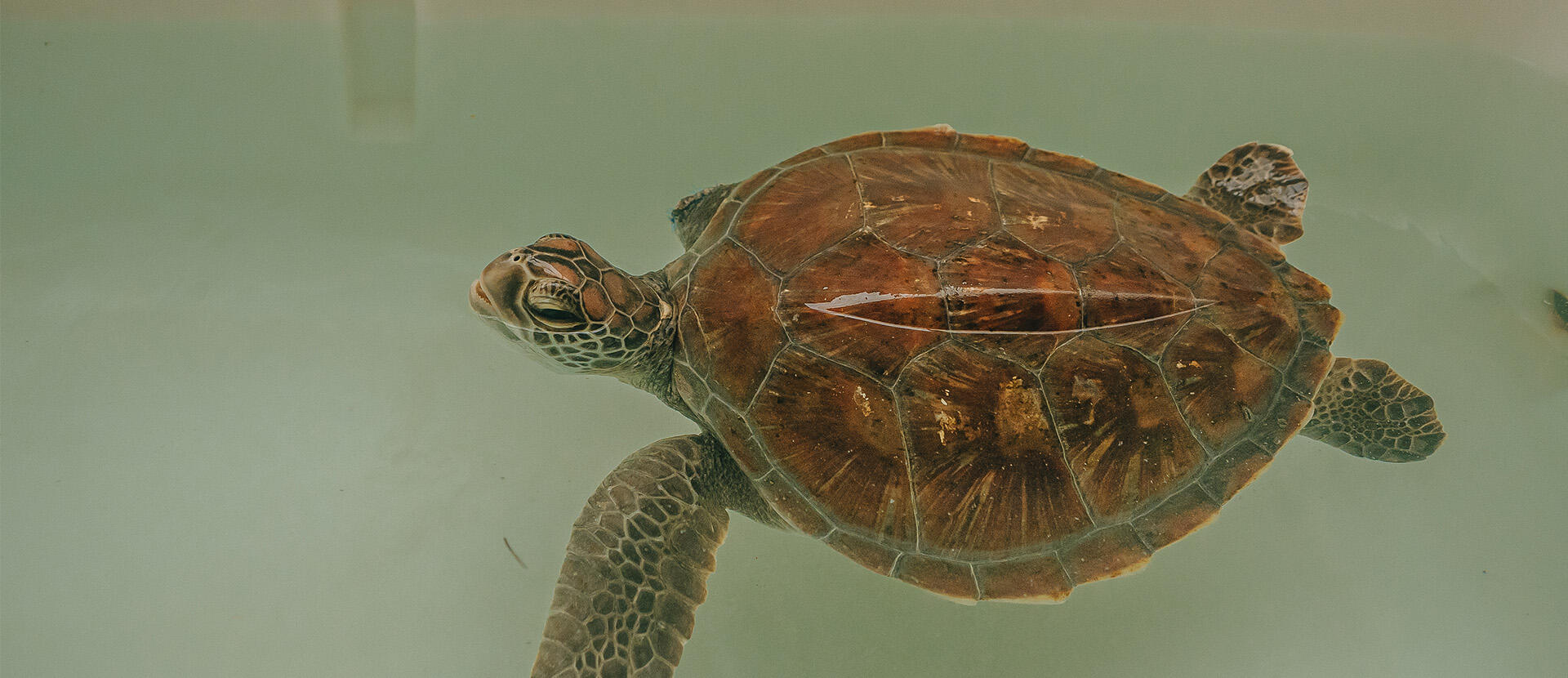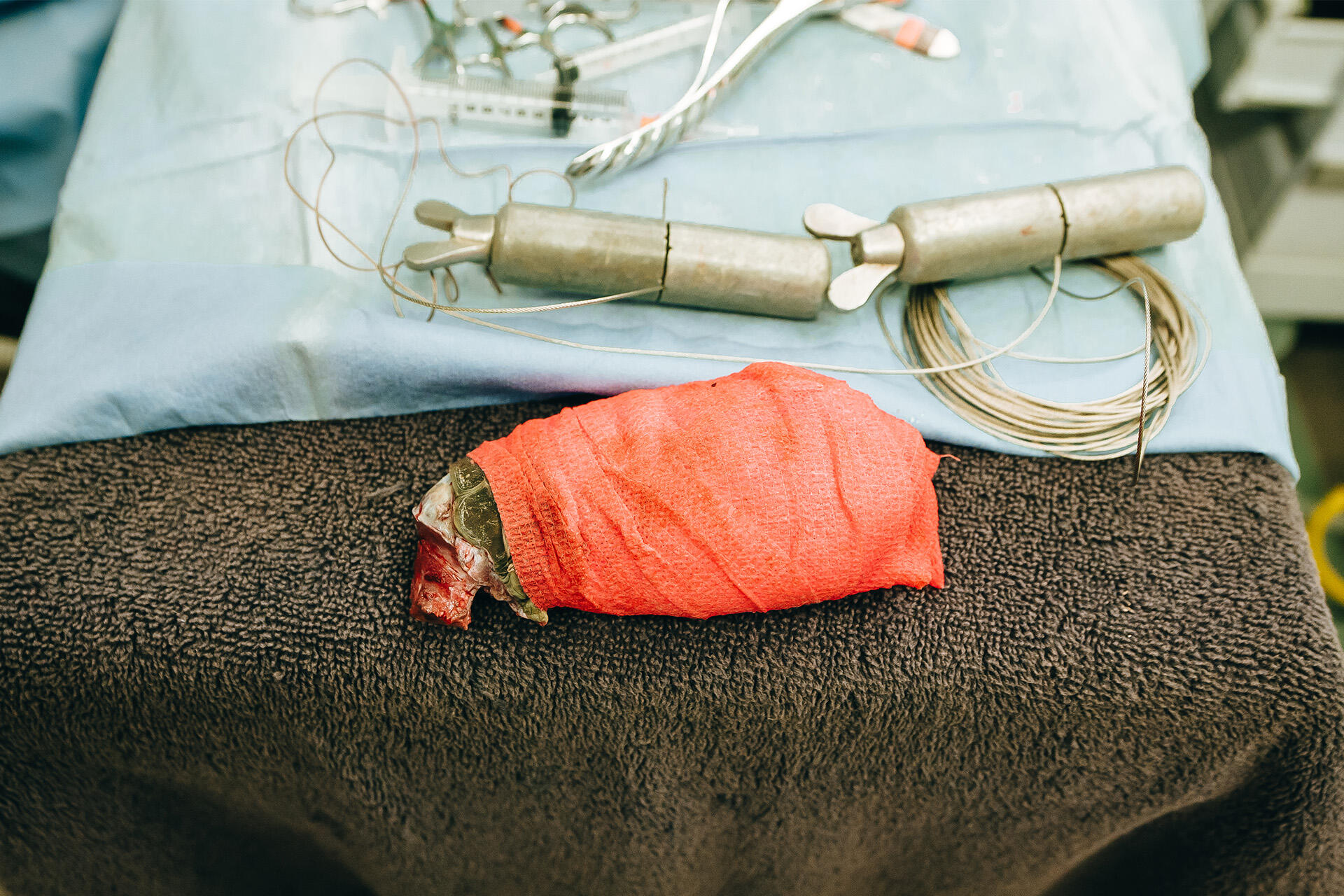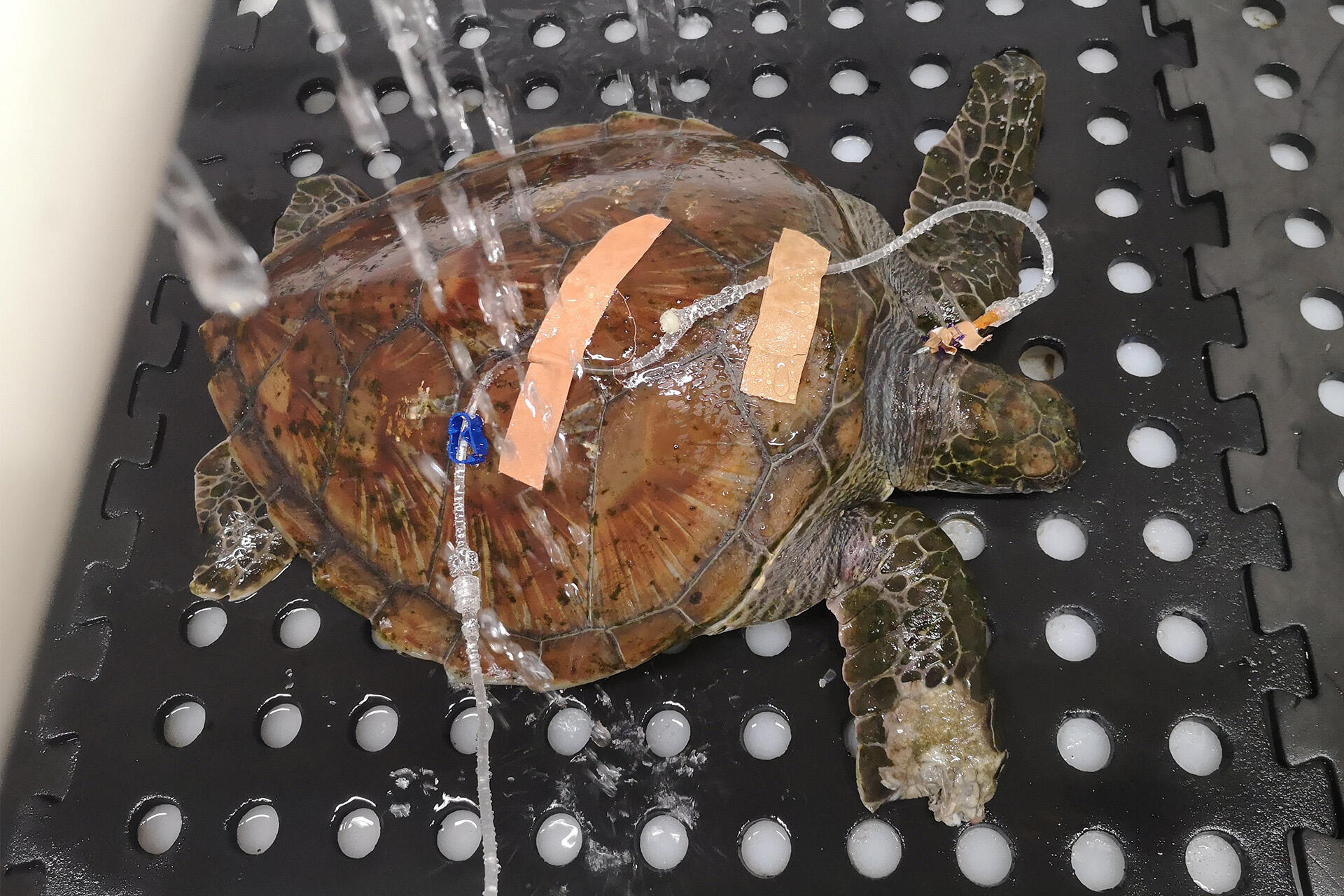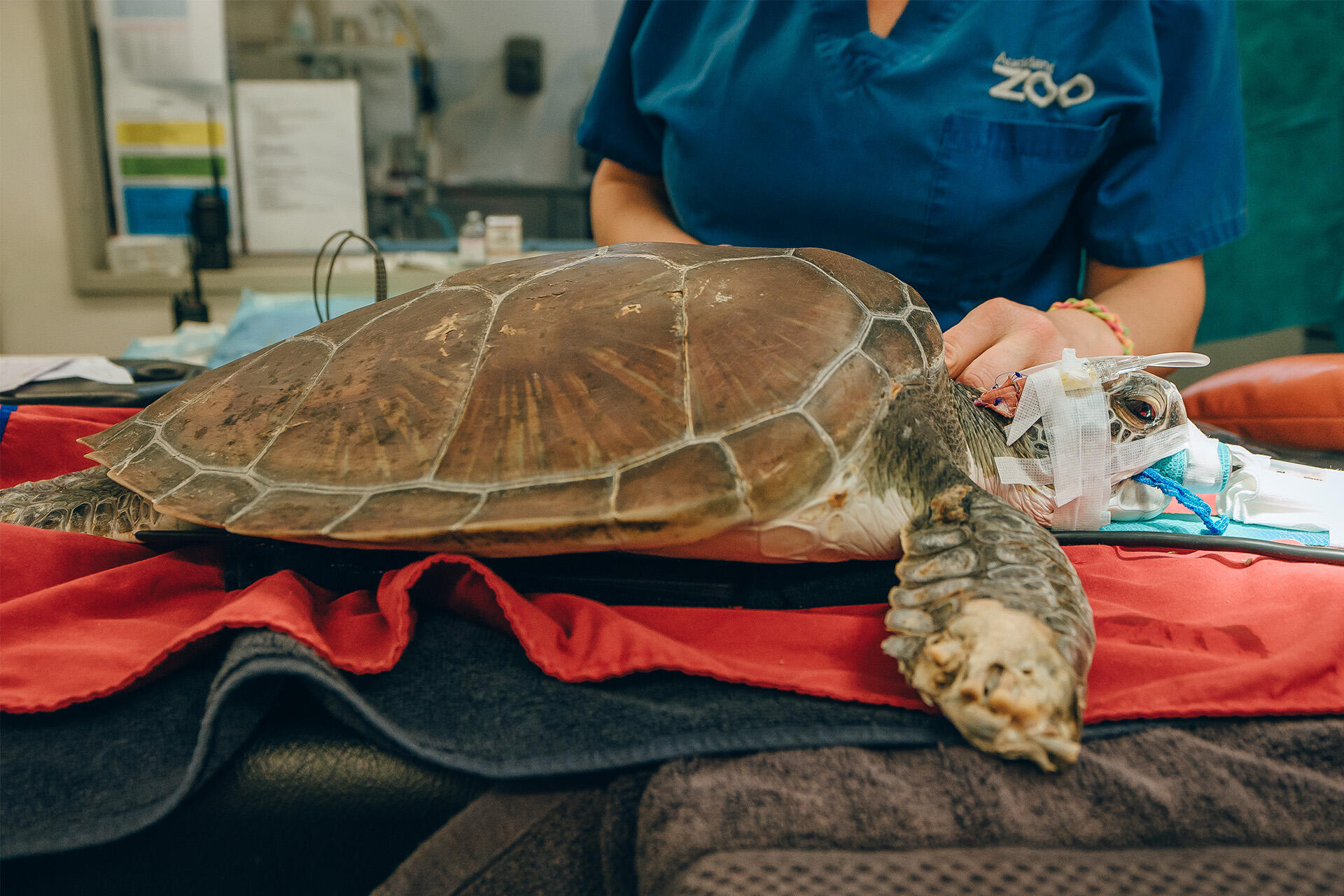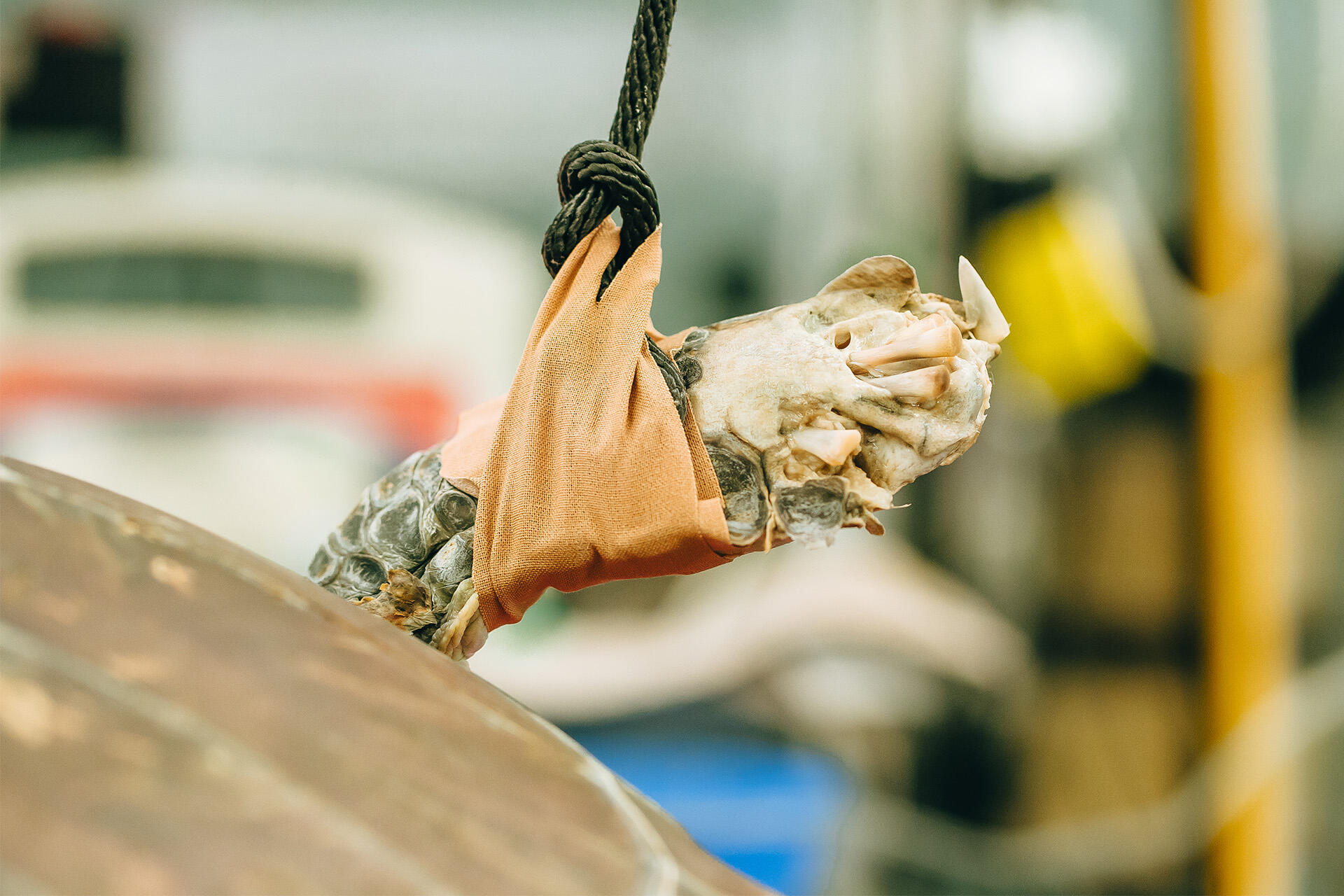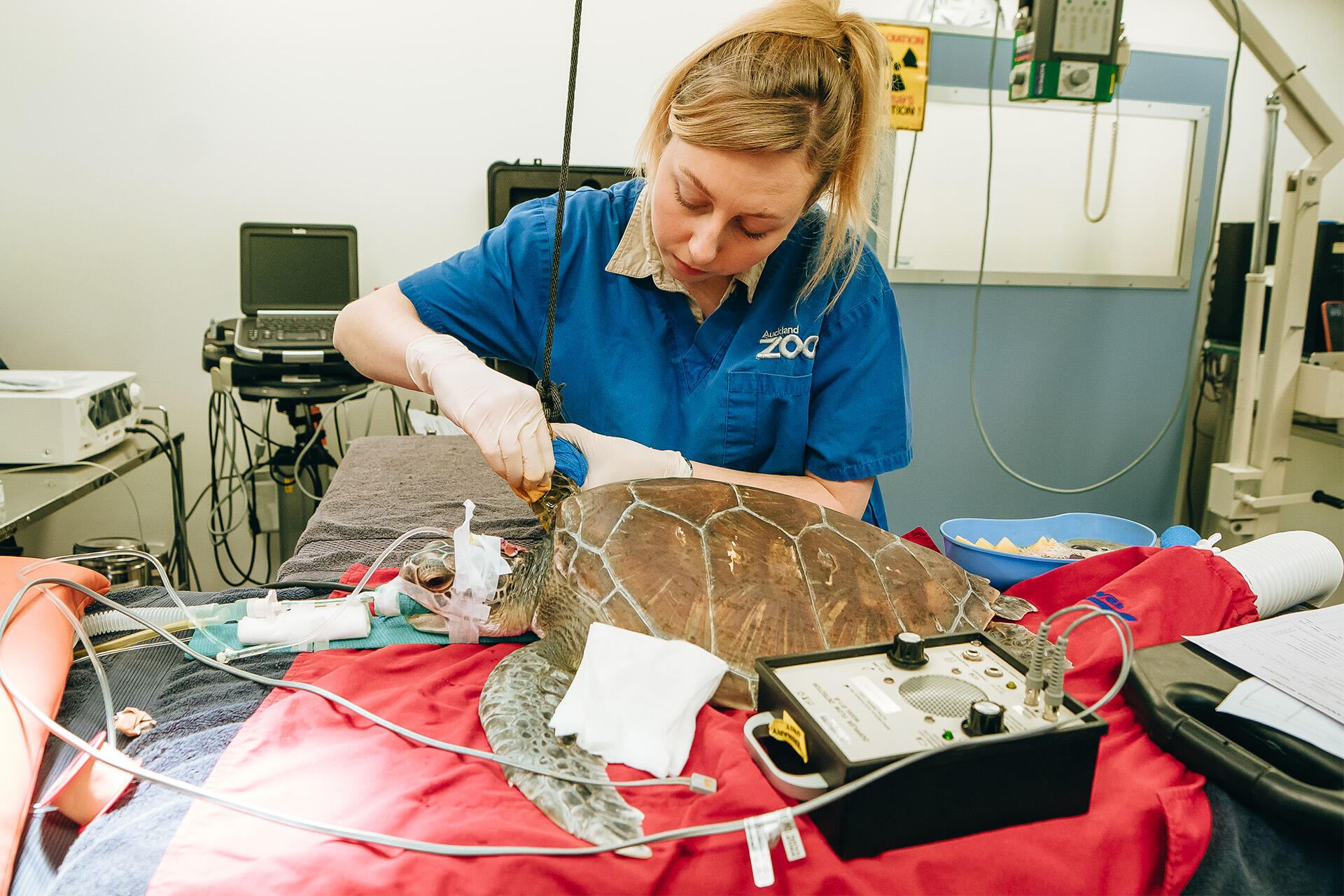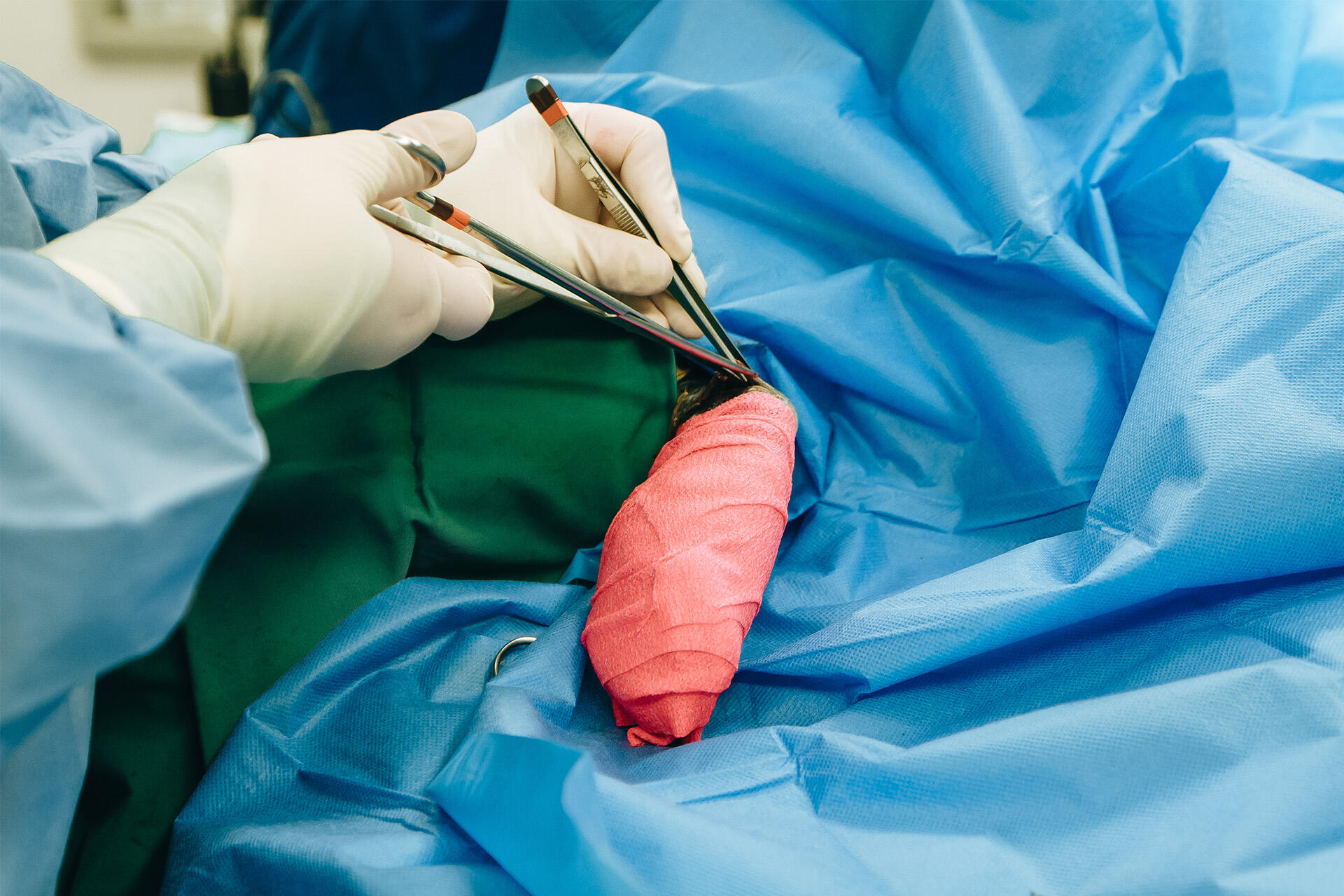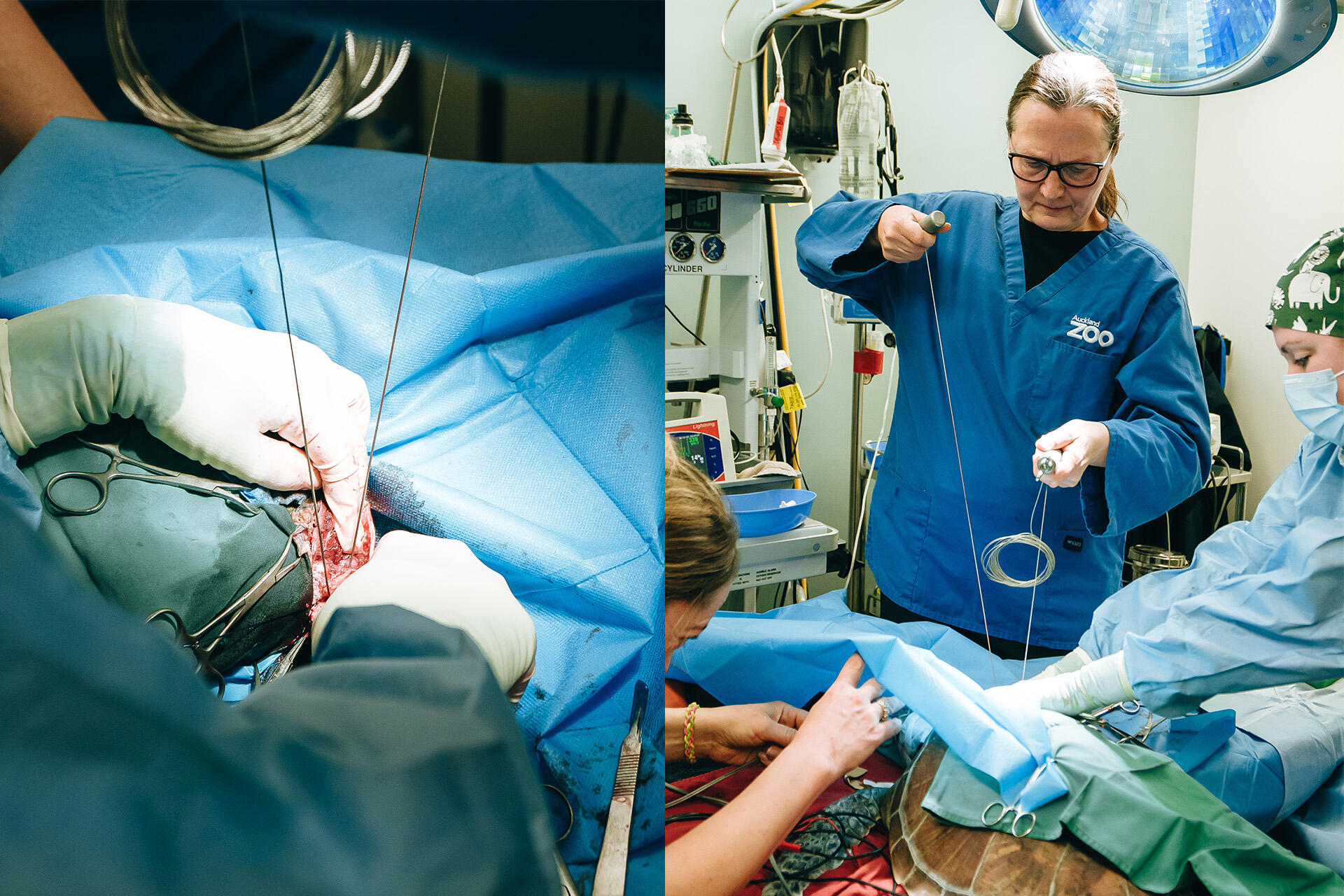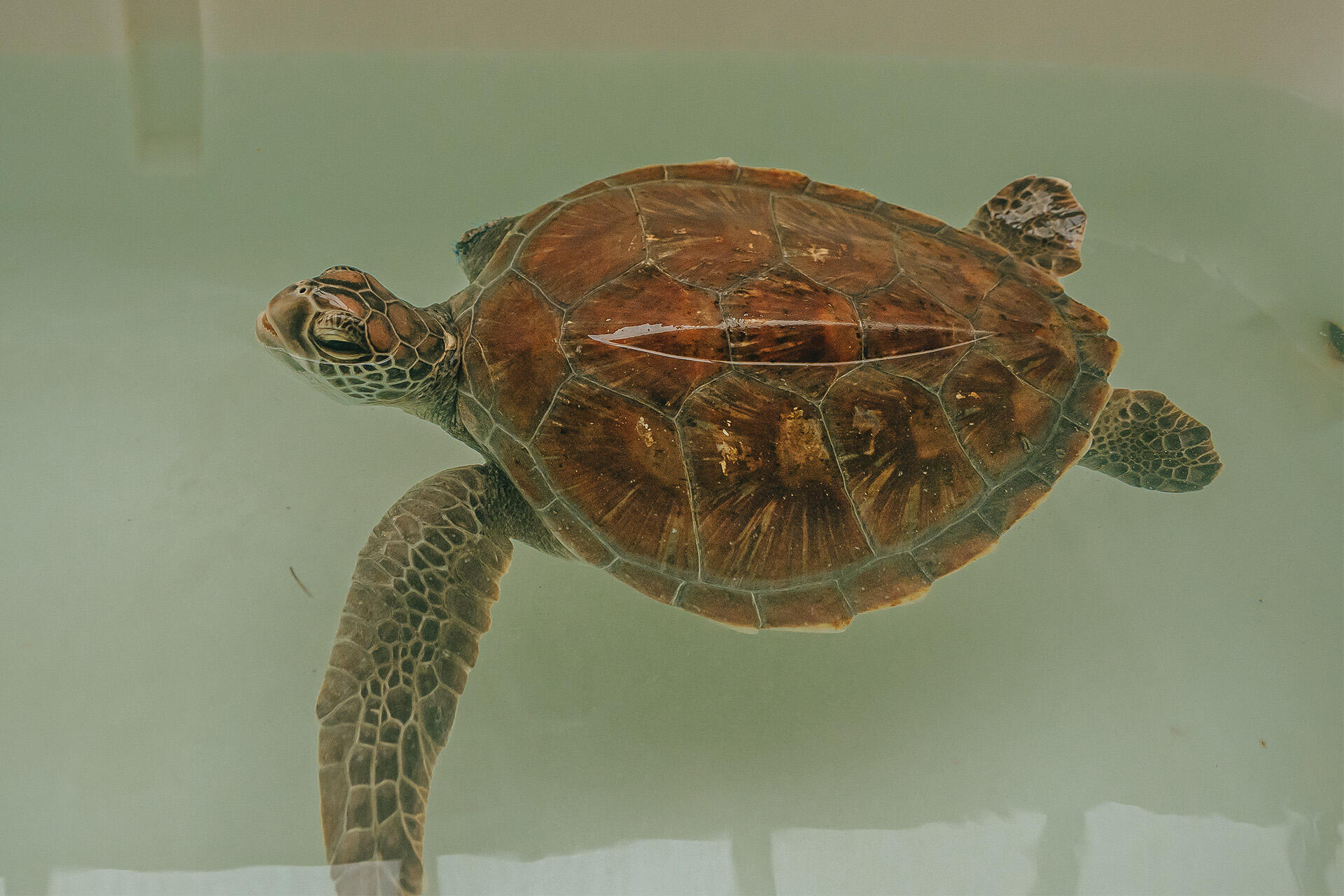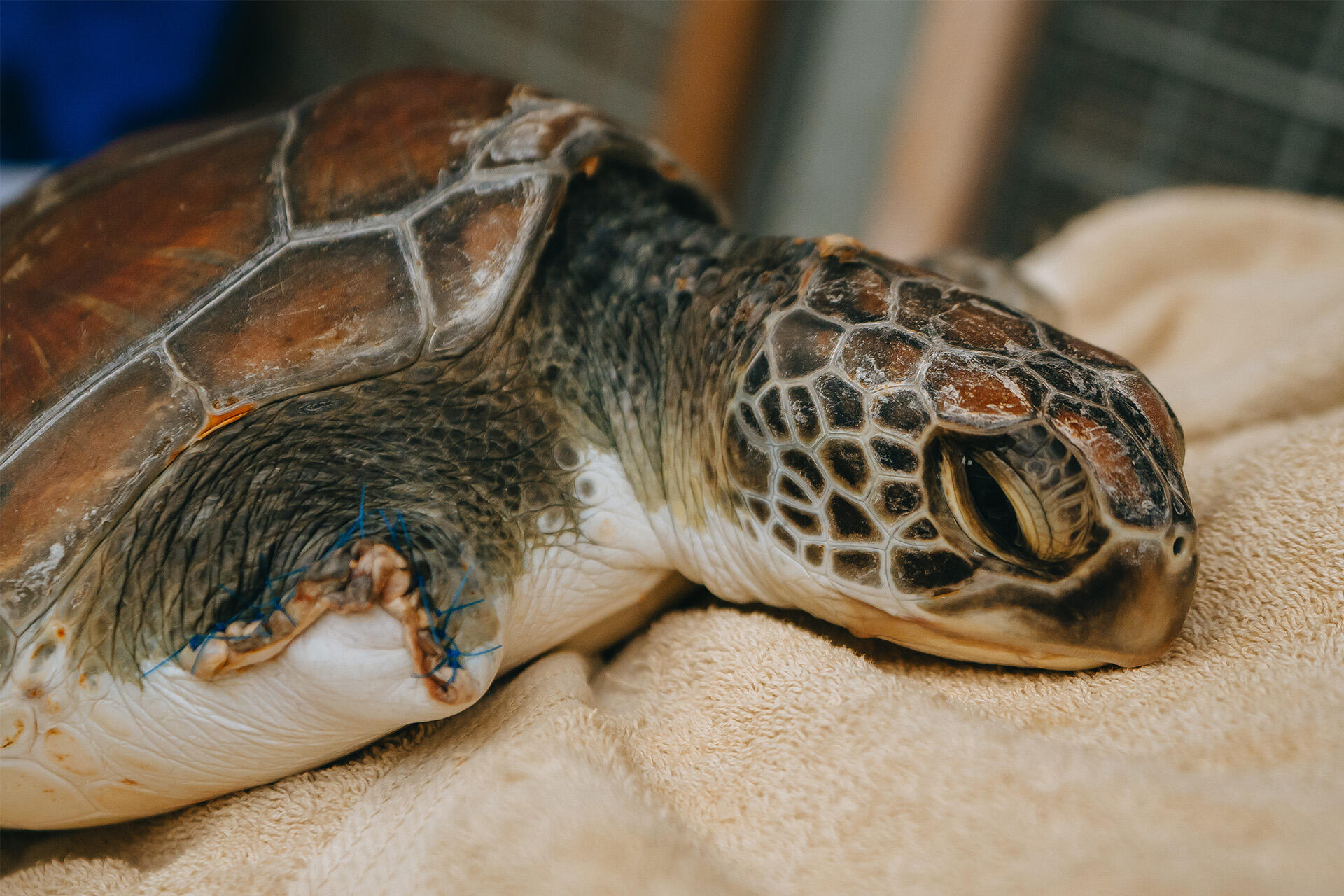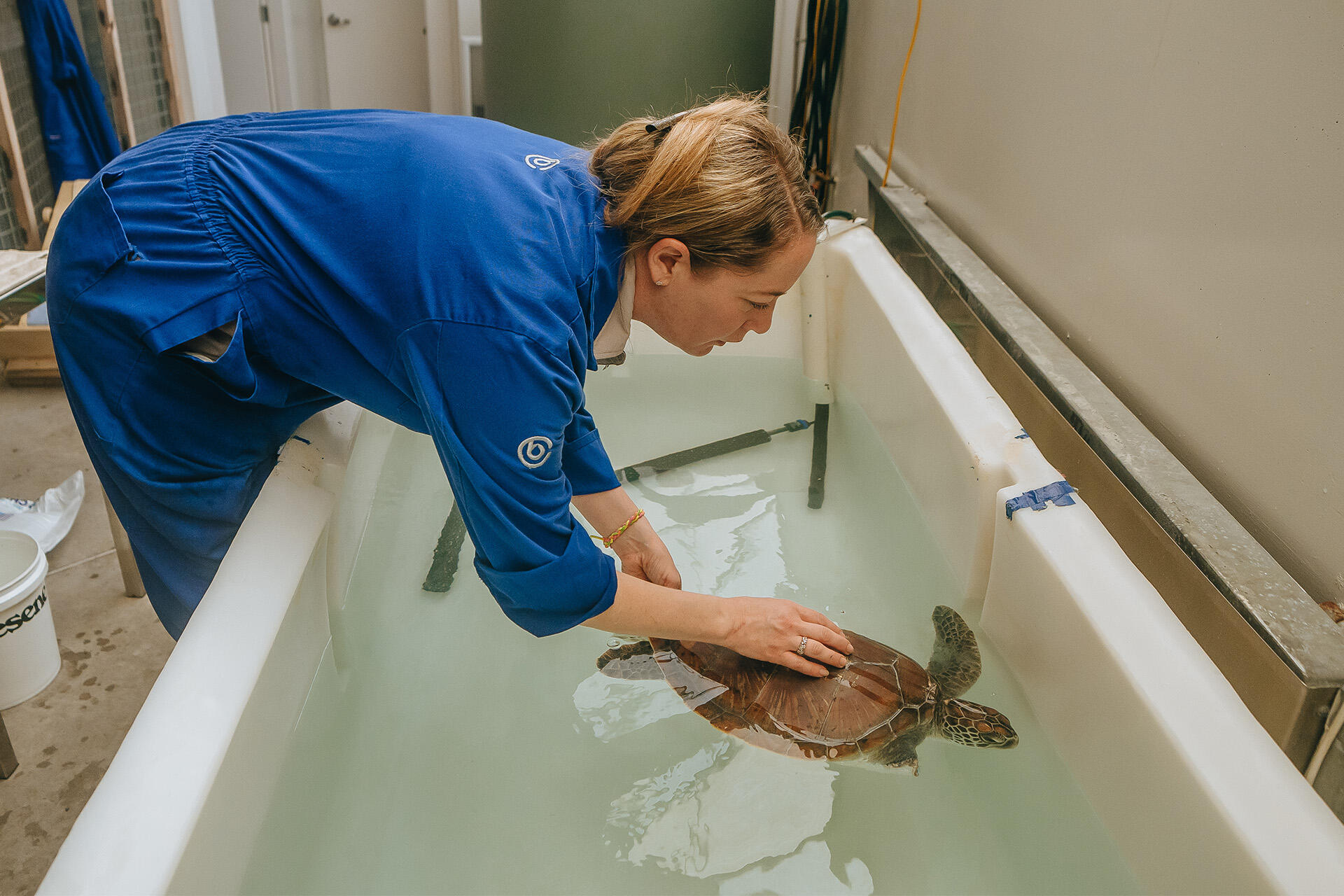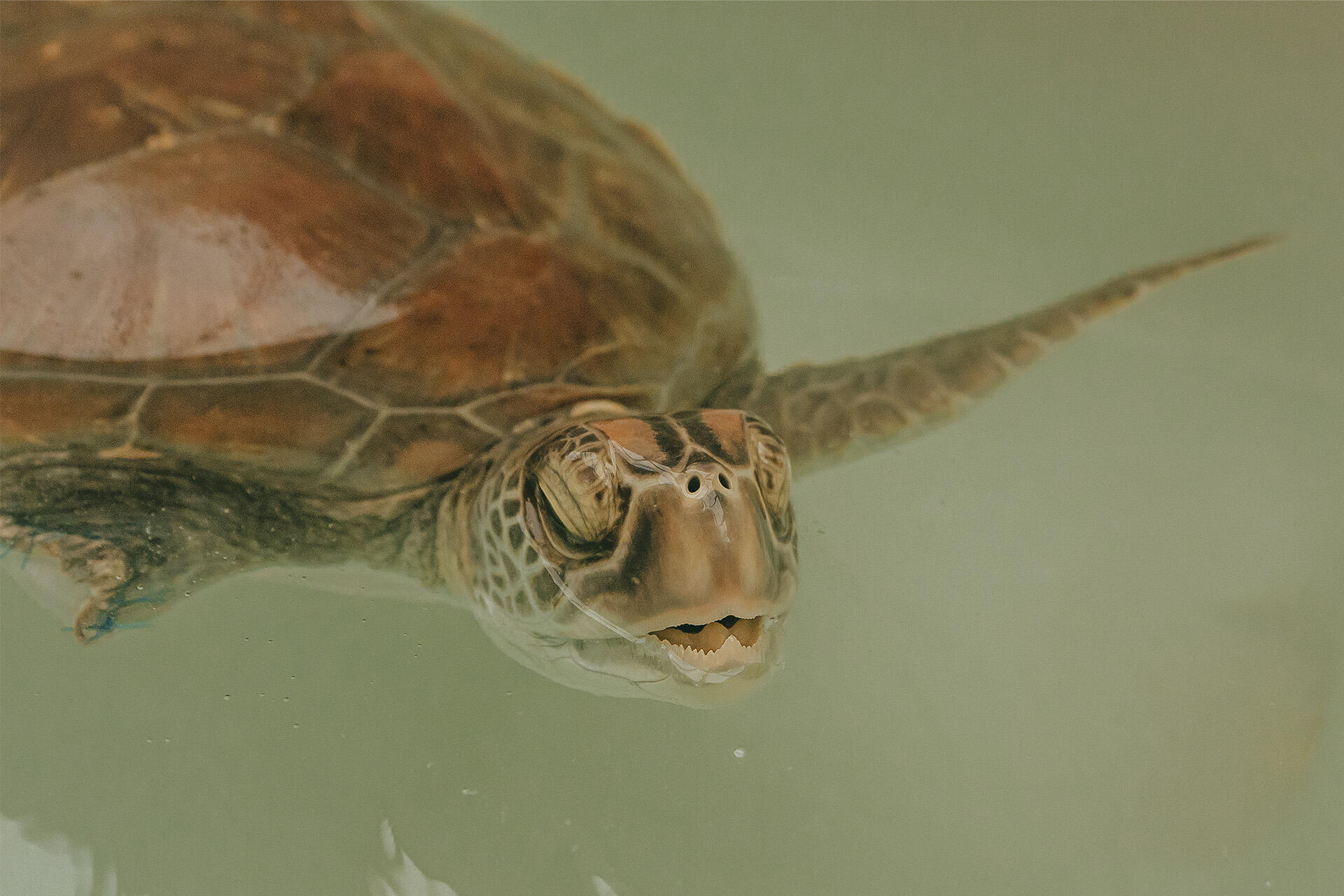Life is looking up for a critically ill green sea turtle found at Hukatere (90 Mile Beach) in late July and transported to Auckland Zoo’s veterinary hospital where it has required weeks of intensive treatment and surgery to amputate a severely injured flipper.
“Tragically, the trauma to the right front flipper of this young turtle (under 10 years) was consistent with entrapment in fishing gear - causing painful strangulation of this limb and cutting off its blood supply. Surgery was essential to remove the exposed bone and surrounding non-viable tissues,” says Auckland Zoo veterinary nurse Celine Campana, who has extensive experience here and overseas rescuing and rehabilitating injured marine turtles.
“The flipper had classic deep scarring and scabs at its top (or shoulder), and small bones at its tip had already begun to dislodge from the flesh. As well as being severely dehydrated and underweight, a CT scan also confirmed it had pneumonia. This is a common respiratory illness in individuals like this that have been injured and struggling for some time - usually caused by a fungal infection in turtles here in New Zealand.”
While still being treated for pneumonia and requiring follow-up Zoo veterinary visits, this turtle has now stabilised sufficiently to relocate to our ‘Team Turtle’ colleagues at SEA LIFE Kelly Tarlton’s today for ongoing rehabilitation. Long-term, along with other Team Turtle partners the Department of Conservation (DOC), and mana whenua, the hope of everyone is that she/he will be able to be released back to the wild to live a full life.


